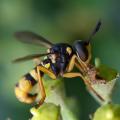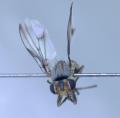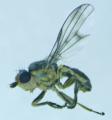Diptera.info :: Identification queries :: Diptera (adults)
Who is here? 1 guest(s)
|
Lauxaniidae
|
|
| alon |
Posted on 03-05-2010 22:28
|
|
Member Location: Poland Posts: 375 Joined: 04.05.07 |
I think it is Tricholauxania or Lyciella (rather Tricholauxania). Please, verify my id. Poland, Gostyn (XT35), forest, 12.08.2009. alon attached the following image: 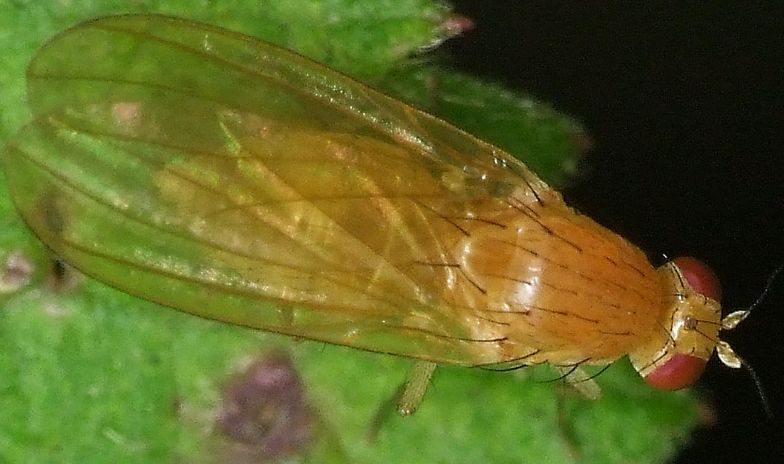 [54.6Kb] |
|
|
|
| alon |
Posted on 03-05-2010 22:28
|
|
Member Location: Poland Posts: 375 Joined: 04.05.07 |
other view
alon attached the following image: 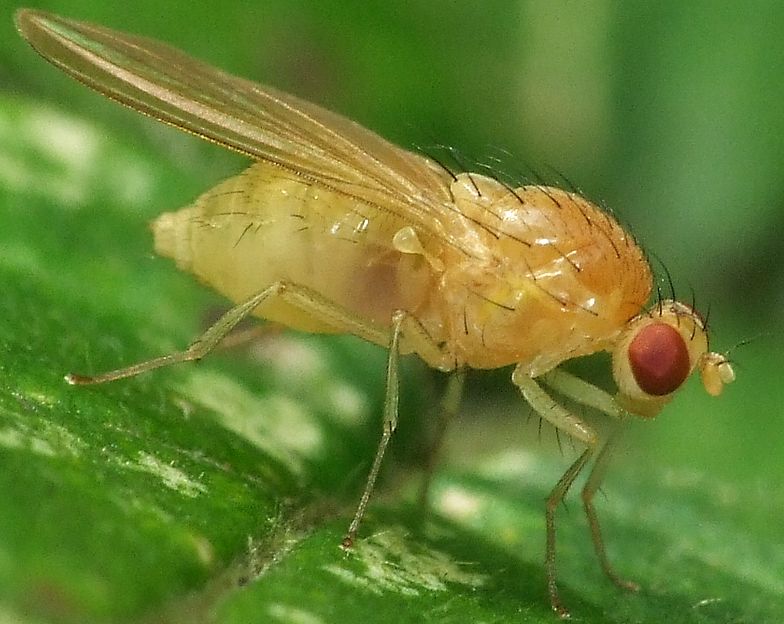 [75.44Kb] |
|
|
|
| Roger Thomason |
Posted on 03-05-2010 22:54
|
|
Member Location: Mossbank,Shetland Isles. Posts: 5254 Joined: 17.07.08 |
Looks like Meiosimyza rorida Which is the new name for Lyciella rorida. Roger http://www.dipter...d_id=26325 EDIT; Unless it's been changed again 
Edited by Roger Thomason on 03-05-2010 23:15 |
|
|
|
| alon |
Posted on 04-05-2010 22:31
|
|
Member Location: Poland Posts: 375 Joined: 04.05.07 |
Thanks Roger. Yes, it looks, but Meiosimyza and Tricholauxania are so similar to each other, for me. What points to Meiosimyza rorida? |
|
|
|
| Roger Thomason |
Posted on 04-05-2010 22:54
|
|
Member Location: Mossbank,Shetland Isles. Posts: 5254 Joined: 17.07.08 |
Nothing technical for my part, I just compared it with images in the Gallery. Sometimes I get it right.....and then there are the other times (lots of them  ). ).Compare it with this one....http://www.dipter...to_id=5321 Roger |
|
|
|
| alon |
Posted on 07-05-2010 22:21
|
|
Member Location: Poland Posts: 375 Joined: 04.05.07 |
I think general appearance is not enought in this case, although most likely yuo are right Maybe sombody else will confirm? |
|
|
|
| viktor j nilsson |
Posted on 08-05-2010 14:57
|
|
Member Location: Gothenburg, Sweden Posts: 203 Joined: 25.02.08 |
Then lets get a bit technical: if we look at the thorax, the presence of presutural dorsocentral bristles and two rows of relatively strong acrostichal bristles fits Meiosimyza. Unpatterned wings without bristles on any of the veins rule out some related genera. So Meiosimyza. But not rorida, as we should then see the row of small spinules on the anteroventral side of the fore femora. With completely yellow antenna and legs and two katepisternals/sternopleurals, I think its probably either M. laeta or M. decipien. Would need to get a clear shot of the palpi to be sure.  |
|
|
|
| viktor j nilsson |
Posted on 08-05-2010 14:59
|
|
Member Location: Gothenburg, Sweden Posts: 203 Joined: 25.02.08 |
Oh, and Tricholauxanisa doesn't have those two rows of strong acrostichals, just four rows of smaller acrostichals. |
|
|
|
| alon |
Posted on 08-05-2010 23:39
|
|
Member Location: Poland Posts: 375 Joined: 04.05.07 |
Thank you Viktor. viktor j nilsson wrote: Oh, and Tricholauxanisa doesn't have those two rows of strong acrostichals, just four rows of smaller acrostichals. On these photos: http://www.dipter...to_id=2994 http://micropics....aeusta.htm Tricholauxania has two rows of rather string acrostichals. I think that lack of bristles on r2+3 excludes Tricholauxania - am I right? viktor j nilsson wrote: Would need to get a clear shot of the palpi to be sure.  Unfortunately I have only these two photos. Edited by alon on 08-05-2010 23:41 |
|
|
|
| katerina dvorakova |
Posted on 11-05-2010 23:26
|
|
Member Location: Czech Republic Posts: 396 Joined: 25.03.08 |
Hi, yes, you are right, but I think you need not this mark. T. praeusta has darkened cross veins and top of the wing, darkened palpi and row of small spinules on the anteroventral side of the fore femora. Katka |
| Jump to Forum: |



